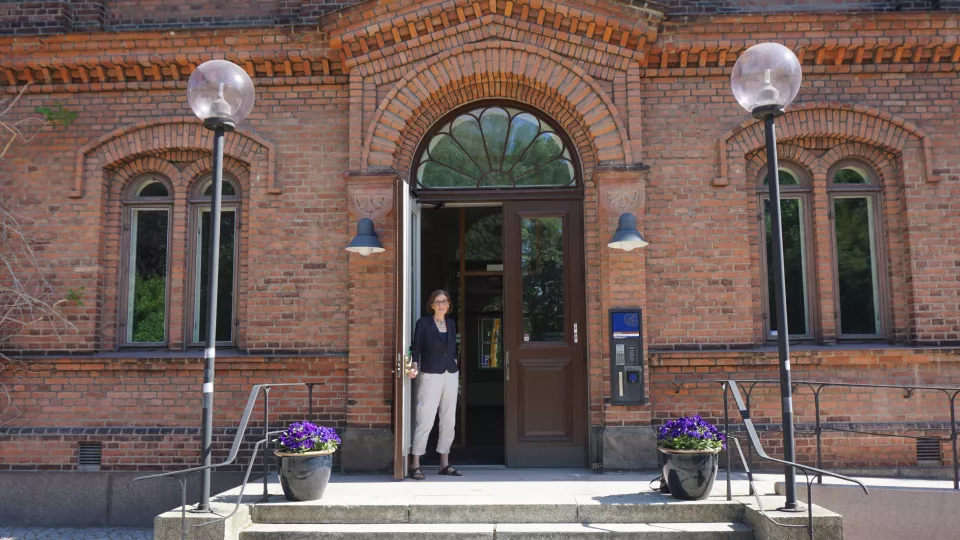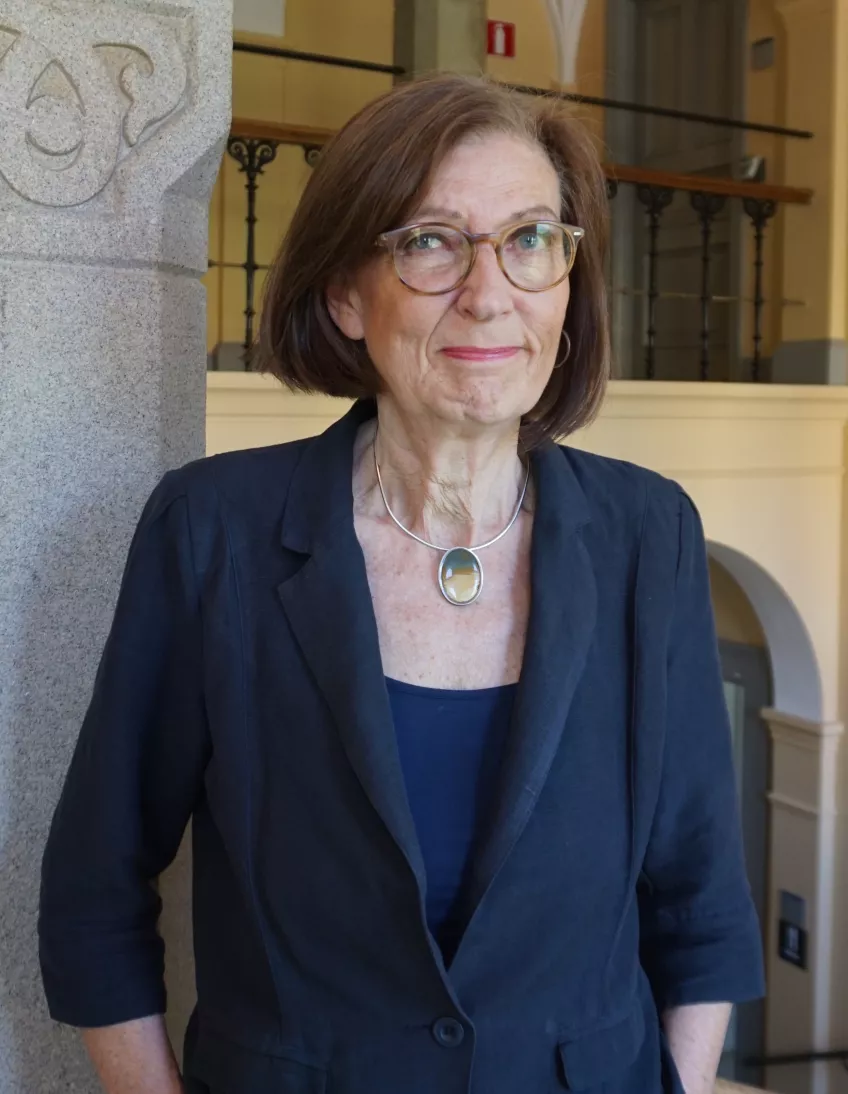Ann-Katrin Bäcklund joins the institute from the Faculty of Social Sciences, where she was dean for the past nine years.
She describes the change, from having been responsible for a large organisation with over 500 staff and 6 000 students to a smaller organisation such as the Pufendorf Institute, as a tremendous opportunity to plunge into research again, even though it is not her own.
“It has been truly rewarding to immerse myself in the work of the applying researchers. And for the first time in many years, I can take part in lectures and seminars right to the end without feeling too stressed about a growing pile of emails.”
As dean, Ann-Katrin learned a lot about research policy, but not so much about the research itself, and she is now looking forward to the opportunity.
She describes herself as a typical social scientist, with an interest in the dynamics and driving forces in the organisation of society. Her working life has been characterised by major societal issues relating to transformation of life and work, and the EU and its political effects. The interdisciplinary approach, just like interaction with external stakeholders, has always been a natural component.
“I have worked almost exclusively on interdisciplinary projects so for me the Pufendorf Institute’s way of working is very familiar, even though I have not taken part in any themes here.”
Ann-Katrin feels that she has come to an organisation that is already running smoothly, and her principal task will be to further strengthen the institute within Lund University.
“The Pufendorf Institute gives researchers the possibility to use its calm and relaxed atmosphere to address new and bold research issues, without demands for immediate results. I want more researchers to realise the tremendous opportunity that LU offers its staff through the Pufendorf Institute.”
Visions for the future
More and more research funders are seeking interdisciplinary research these days. Ann- Katrin is keen to emphasise the Pufendorf Institute’s role as an incubator for future research projects.
“Our groups, in contrast to the University’s collaboration projects, for example, address ‘immature’ projects and issues at an early stage. The primary aim is that the project is to contribute on a scientific basis and enable continued research in the field.”
Another objective for the institute’s new director is for more researchers to apply to Themes and Advanced Study Groups, not least from medicine and science subjects. This would further improve representation from the entire University, which is important for us as an interdisciplinary institute, considers Ann-Katrin.
In the future she hopes that the institute will have possibilities to take in more groups. She also wants to develop the forms of the institute’s Advanced Study Groups to make them more attractive.
“Taking part in an Advanced Study Group is exciting, as it really provides the opportunity to work with an open mind on new research issues. Unfortunately, our Theme groups are more in demand at the moment. They receive higher funding, but we also set higher requirements for them.”
During the autumn, Ann-Katrin plans to visit the faculties to talk about why researchers should apply to the Pufendorf Institute, how to write an application, and who is eligible to apply.
“Many researchers dream about having the time at some point to develop major and complex research issues, but they are not always aware that that opportunity already exists here. I want to be able to change that perception.”



